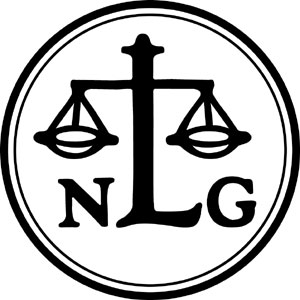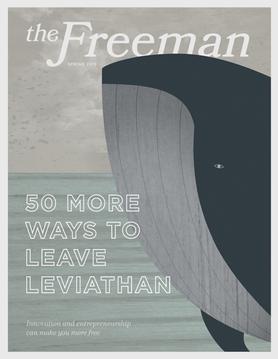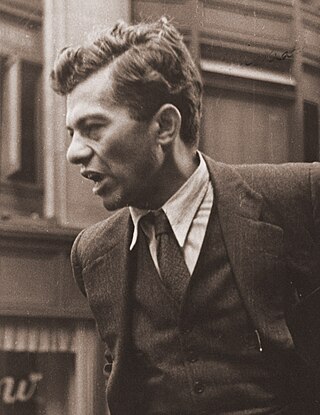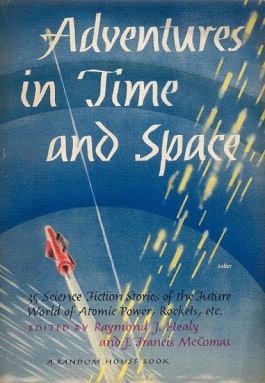Related Research Articles

Robert Marion La Follette Jr. was an American politician who served as United States senator from Wisconsin from 1925 to 1947. A member of the La Follette family, he was often referred to by the nickname "Young Bob" to distinguish him from his father, Robert M. "Fighting Bob" La Follette, who had served as a U.S. senator and governor of Wisconsin. Robert Jr., along with his brother Philip La Follette, carried on their father's legacy of progressive politics and founded the Wisconsin Progressive Party. Robert Jr. was the last major Progressive Party politician in the U.S. Senate, ending in 1946 when the party disbanded. La Follette was defeated in the 1946 Republican Senate primary by Joseph McCarthy.

The National Lawyers Guild (NLG) is a progressive public interest association of lawyers, law students, paralegals, jailhouse lawyers, law collective members, and other activist legal workers, in the United States. The group was founded in 1937 as an alternative to the American Bar Association (ABA) in protest of that organization's exclusionary membership practices and conservative political orientation. They were the first predominantly white US bar association to allow the admission of minorities to their ranks. The group sought to bring more lawyers closer to the labor movement and progressive political activities, to support and encourage lawyers otherwise "isolated and discouraged," and to help create a "united front" against Fascism.

The Freeman was an American libertarian magazine, formerly published by the Foundation for Economic Education (FEE). It was founded in 1950 by John Chamberlain, Henry Hazlitt, and Suzanne La Follette. The magazine was purchased by a FEE-owned company in 1954, and FEE took over direct control of the magazine in 1956.

Red Channels: The Report of Communist Influence in Radio and Television was an anti-Communist document published in the United States at the start of the 1950s. Issued by the right-wing journal Counterattack on June 22, 1950, the pamphlet-style book names 151 actors, writers, musicians, broadcast journalists, and others in the context of purported Communist manipulation of the entertainment industry. Some of the 151 were already being denied employment because of their political beliefs, history, or association with suspected subversives. Red Channels effectively placed the rest on a blacklist.
Suzanne Clara La Follette was an American journalist and author who advocated for libertarian feminism in the first half of the 20th century. As an editor she helped found several magazines. She was an early and ardent feminist and a vocal anticommunist.
Ralph de Toledano was an American writer in the conservative movement in the United States throughout the second half of the 20th century. A friend of Richard Nixon, he was a journalist and editor of Newsweek and the National Review, and the author of 26 books, including two novels and a book of poetry. Besides his political contributions, he also wrote about music, particularly jazz.

Michael Gold was the pen-name of Jewish American writer Itzok Isaac Granich. A lifelong communist, Gold was a novelist and literary critic. His semi-autobiographical novel Jews without Money (1930) was a bestseller. During the 1930s and 1940s, Gold was considered the preeminent author and editor of U.S. proletarian literature.

Adventures in Time and Space is an American anthology of science fiction stories edited by Raymond J. Healy and J. Francis McComas and published in 1946 by Random House. A second edition was also published in 1946 that eliminated the last five stories. A Modern Library edition was issued in 1957. When it was re-released in 1975 by Ballantine Books, Analog book reviewer Lester del Rey referred to it as a book he often gave to people in order to turn them onto the genre. It is now once again out of print.
Alfred Kohlberg was an American textile importer. A staunch anti-Communist, he was a member of the pro-Chiang "China lobby", as well as an ally of Wisconsin Senator Joseph McCarthy, a friend and advisor of John Birch Society founder Robert W. Welch Jr., and a member of the original national council of the John Birch Society.
Isaac Don Levine was a 20th-century Russian-born American journalist and anticommunist writer, who is known as a specialist on the Soviet Union.
Arthur Aleksandrovich Adams, was a Soviet spy, and Hero of the Russian Federation, who passed critical information to the Soviet Union about the American Manhattan Project.
Arlington House, Inc., now-defunct, was an American book publisher of jazz discographies, as well as conservative and anti-communist titles. It was a Delaware corporation from 1964 to 1988 with offices in New Rochelle and New York City and, in 1981, Westport, Connecticut.

Counterattack was a weekly subscription-based, anti-communist, mimeographed newsletter that ran from 1947 to 1955. It was published by American Business Consultants, a "private, independent organization" started by three ex-Federal Bureau of Investigation agents.
Oliver Carlson (1899–1991) was founder of the Young Communist League of America among other Communist organizations and then served as an anti-communist government witness who specialized in Communist infiltration in Hollywood.
Guenther Reinhardt (1904-1968) was a German-American writer and investigator, best known for his book Crime Without Punishment: The Secret Soviet Terror Against America (1952).
The Joint Committee Against Communism, also known as the Joint Committee Against Communism in New York, was an anti-communist organization during the 1950s.
The American China Policy Association (ACPA) was an anti-communist organization that supported the government of Republic of China, now commonly referred to as Taiwan, under Chiang Kai-shek.
Courtney E. Owens (1924–2014), AKA Courtney Owens, was a 20th-century American civil servant, best known as chief investigator for the House Un-American Activities Committee (HUAC) from 1954 to 1957.
George Morris (1903–1997) was an American writer and labor editor for the CPUSA Daily Worker newspaper who left a body of written work and oral history that documents militant trade unionism as part of American labor history during the first half of the 20th century – including the 1934 West Coast waterfront strike.
References
- 1 2 3 4 Don Levine, Isaac (1976). Plain Talk: An Anthology from the Leading Anti-Communist Magazine of the 40s. New Rochelle, New York: Arlington House. pp. xii–xiv. ISBN 978-0-87000-348-6.
- 1 2 3 Critchlow, Donald T. (2007). The Conservative Ascendancy: How the GOP Right Made Political History. Cambridge, Massachusetts: Harvard University Press. p. 21. ISBN 978-0-674-02620-9.
- 1 2 3 4 de Rosa, Peter L. (1999). "Plain Talk 1946-1950". In Lora, Ronald; Henry, William Longton (eds.). The Conservative Press in Twentieth-Century America. Westport, Connecticut: Greenwood Publishing Group. pp. 461–469. ISBN 0-313-21390-9.
- ↑ "Isaac Don Levine, 89, Foe of Soviet". The New York Times. February 17, 1981. Retrieved February 21, 2016.
- ↑ "Guide to the Ernie Lazar FBI FOIA Files on Anti-Communism and Right Wing Movements TAM.576". Tamiment Library. March 2015. Retrieved March 3, 2018.
- ↑ "Guide to the Church League of America Collection of the Research Files of Counterattack, the Wackenhut Corporation, and Karl Baarslag TAM.148: Descriptive Summary". Tamiment Library. July 2014. Retrieved March 2, 2018.
- ↑ "Red Channels: The Report of Communist Influence in Radio and Television". Billboard. September 9, 1950. pp. 4, 18, 59, 61 (John Quincy Adams Associates).
- ↑ Robb, David L. (2012). The Gumshoe and the Shrink: Guenther Reinhardt, Dr. Arnold Hutschnecker, and the Secret History of the 1960 Kennedy-Nixon Election. Santa Monica Press. p. 21. ISBN 978-1-59580-850-9.